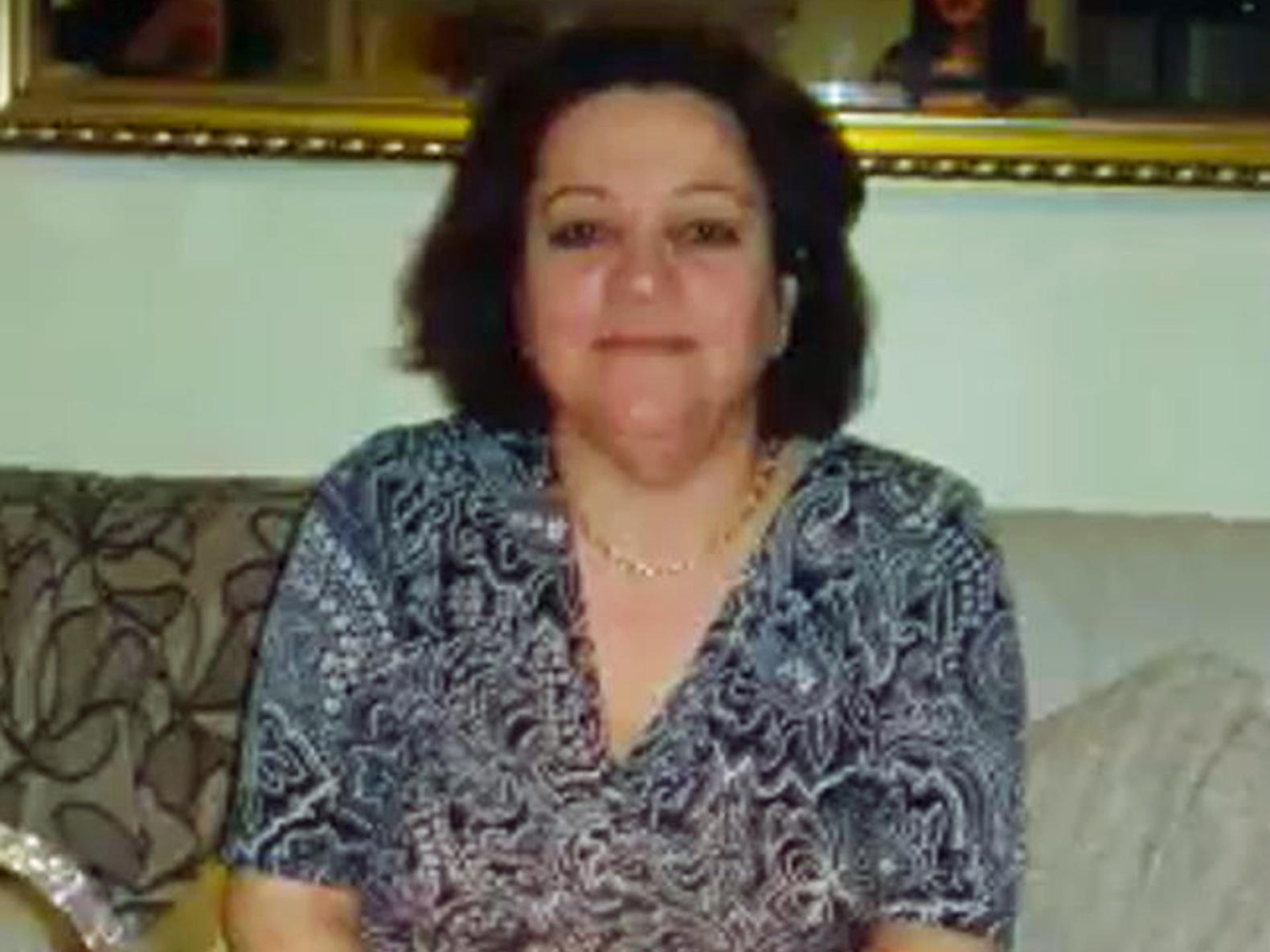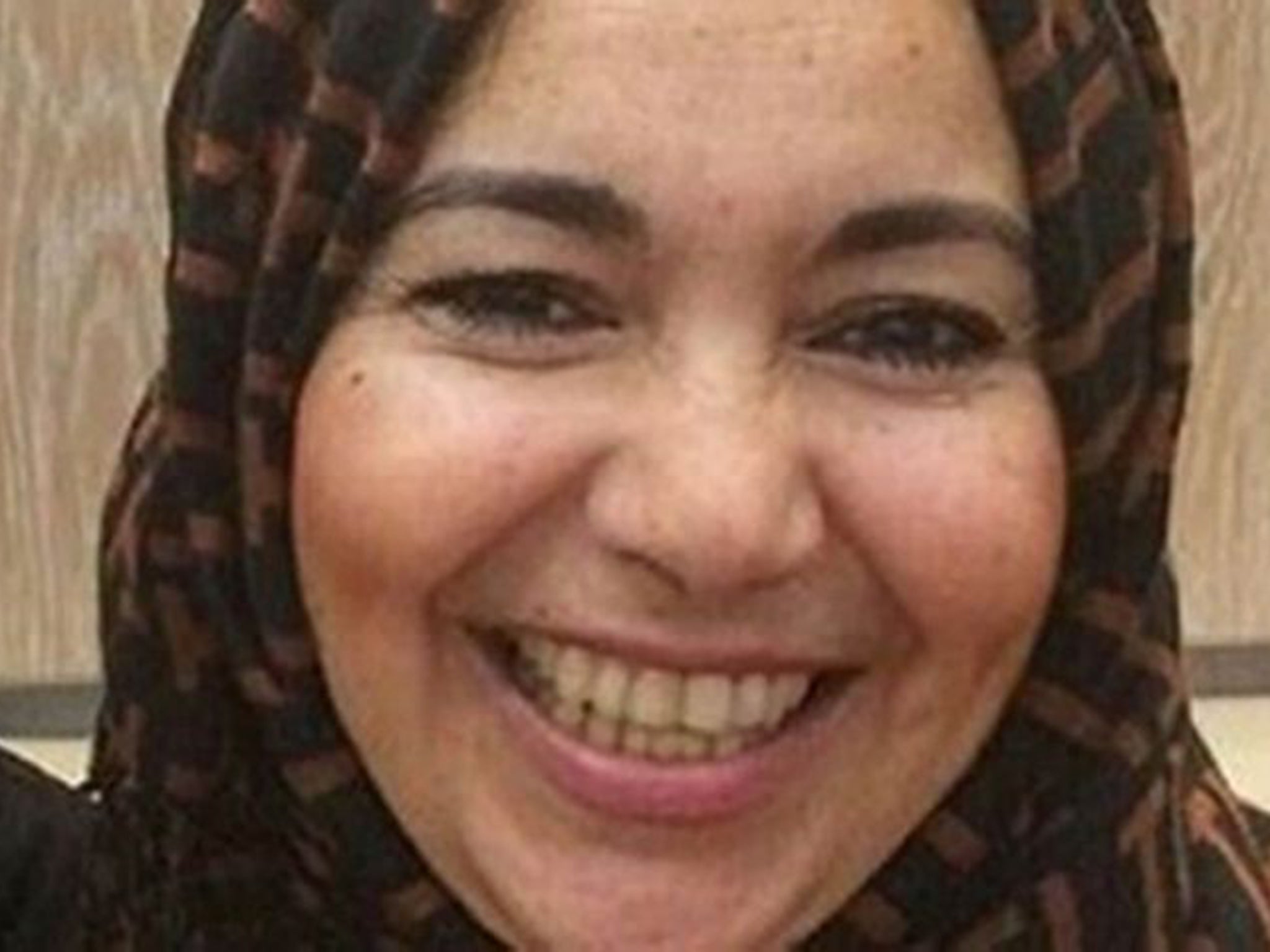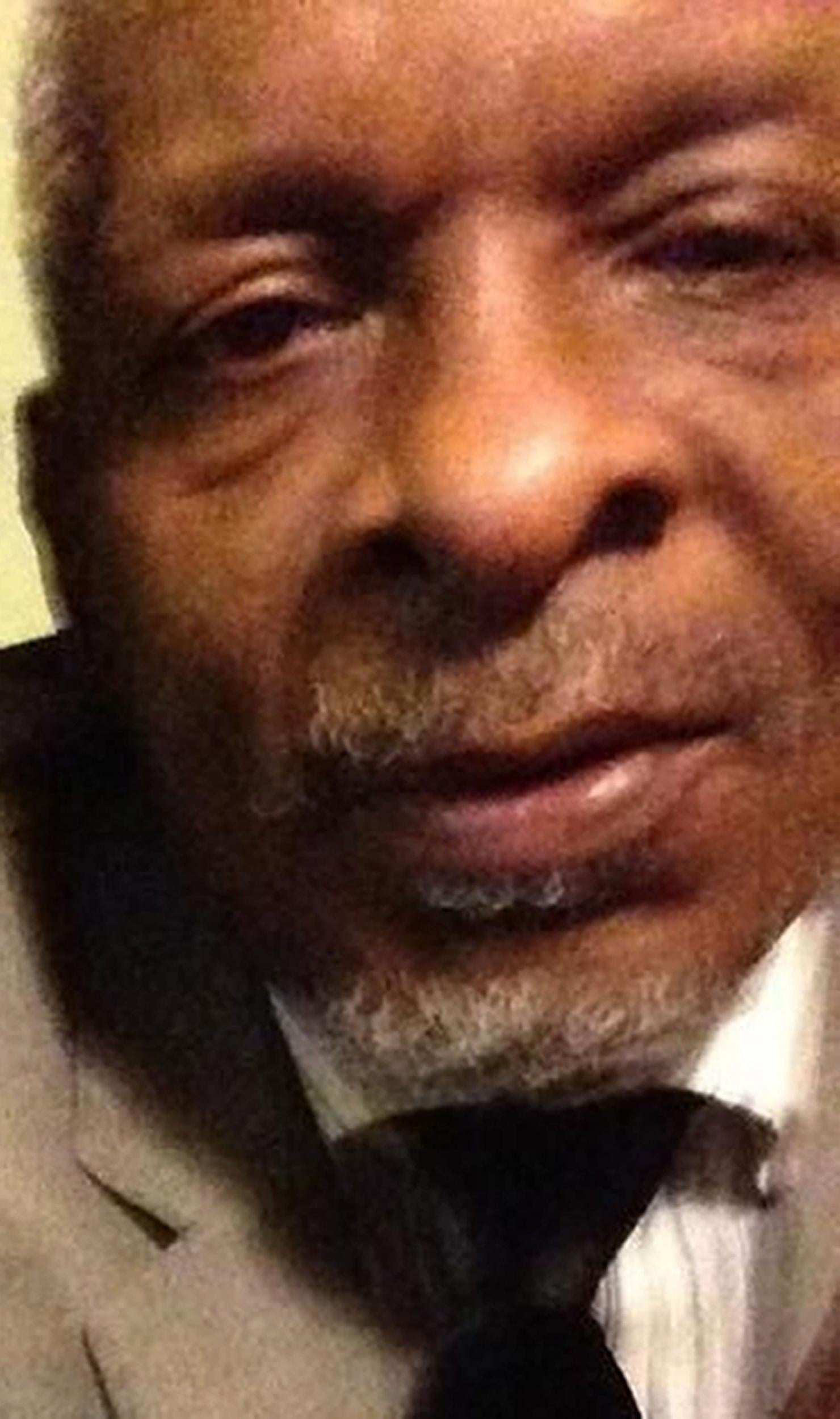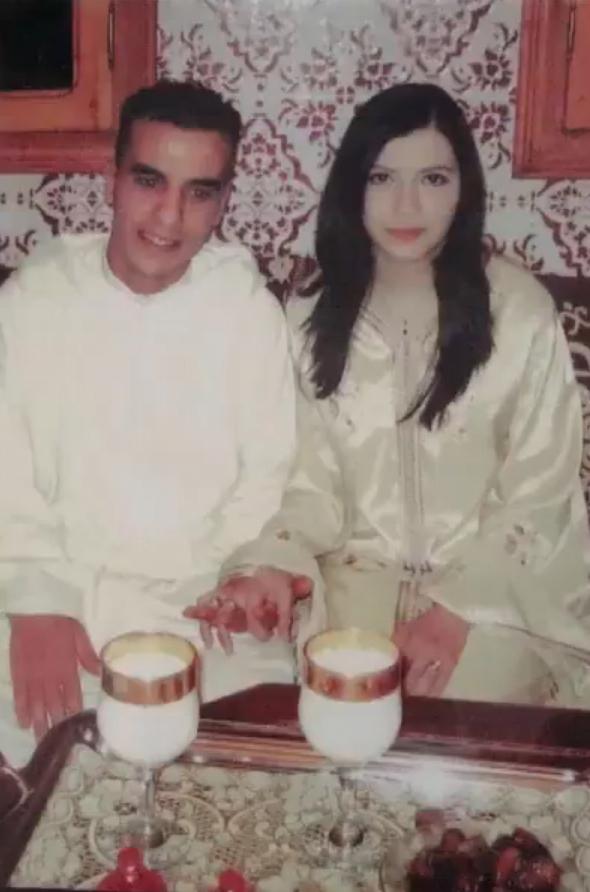Grenfell Tower inquiry: Disabled victim housed on 18th floor denied 'human right to escape', says sister
Move to high-rise 'was out of desperation and pressure from the council', says daughter

A disabled woman who lived on the 18th floor of Grenfell Tower was deprived of her “human right to escape”, her daughter has told an inquiry into the fire which killed her.
Tributes were paid to Sakineh Afrasiabi, 65, on Wednesday, which was the final day of commemorative hearings to the 72 victims of the blaze
Grief overcame one bereaved woman who collapsed in the afternoon and the inquiry was stopped briefly while she received medical attention.
Earlier, Ms Afrasiabi’s daughter, Nazanin Aghlani, had told the inquiry the housing department at Royal Borough of Kensington and Chelsea (RBKC) was partly to blame for her mother’s death.
She said the council agreed in 2003 the “vulnerable, physically disabled and partially sighted pensioner” should not live in a high-rise building.
Despite the requests of her family, it later placed her near the top of 24-storey block and threatened to remove her from the council housing list if she refused the offer, the inquiry heard.
“The RBKC housing department formally recognised and stated that due to my mum’s disability and deteriorating health she should not be housed in a lifted property above the fourth floor,” Ms Aghlani said.
“I emphasise that was in 2003. Fourth floor, because that was her human right to escape, the right every single person should have.
“After being refused many suitable properties, after 16 years of waiting, she was rehoused in 2016 into flat 151 on the 18th floor of Grenfell Tower.
“By this point, my mum was partially sighted and could only get around with the aid of a tri-walker.”
She added: “The move to Grenfell was out of desperation and pressure from the council. She was to take Grenfell Tower or to be suspended from the allocations for one year.
“She was very upset by the new place, she hated it .”
Ms Afrasiabi died alongside her sister Fatemah Afrasiabi, 59, who was visiting from Iran when the tower block was consumed by fire.
But Fatemah’s grieving husband was forced to issue a statement via his son Mohammed Samimi after his visa application was rejected.
The Home Office’s refusal to let him into the country also means he has been unable to visit his wife’s grave, Mr Samimi said.
“I wanted to take this opportunity to remember my father, who could not come to the UK,” he told the inquiry.
“His visa application was refused, and he says that ‘I am spending my days and nights by the thought of my children and I want to be able to visit my wife’s grave’.”
The Independent reported last week that bereaved family members who were set to be core participants of the inquiry were still awaiting permission to enter the UK.
They included Karim Khalloufi, whose elder sister Khadija Khalloufi died in the fire. He had hoped to read out a “pen portrait” tribute to her on Wednesday but was unable to attend following delays to his visa application.
Mr Khalloufi waited months to hear back from immigration officials after applying in December for a visa, which was eventually granted last week shortly after The Independent approached the Home Office.
“He did finally obtain a visa to travel, however then there were related difficulties in securing support with accommodation and related problems,” said his solicitor Balvinder Gill.
“He is very, very upset that he cannot be here. He prepared the pen portrait, he wanted to present it on behalf of his sister.
“There is no other family here in the UK who could read it out on his behalf.”

In a statement read out by the lawyer, Mr Khalloufi said: “Today it is nearly five months since I and my mother applied for a visa to the UK.
“We had been led to believe that we could be in London for the inquiry, but now does not seem to be the case.
“No one seems to care about our history or relationship to this case, or to care about our pain, our heartache or our desire for answers.
“I am now at a loss as to what I can do to defend my family’s rights in this case and to represent my sister, who seems to have no representation.”
Mr Khalloufi said his older sister was like a mother to him and his siblings and left a “void” in their home when she moved from Morocco to London.
She lived with her husband of 27 years, Sabah Abdullah, on Grenfell’s 17thfloor and loved cooking and sharing food with her neighbours and friends.
The morning after the fire, Mr Khalloufi called calling his sister repeatedly, “trying my hardest to get through but to no avail”, he said.
A friend in the UK told him her husband had been found alive, which raised his hopes that his sister had also survived the blaze. But the next day her body recovered.
“She was there for us whenever we needed her but none of us could help her escape the fire on 14 June, 2017,” Mr Khalloufi said.
“You cannot imagine the helplessness and pain when you are far away and no one is telling you what happened and why.”
The inquiry also heard on Wednesday from the family of a “hero” grandfather who sheltered six people in his top-floor flat as flames tore through the tower.
Raymond “Moses” Bernard gave refuge to families trying to escape the inferno as it consumed the block.
The 63-year-old electrician, who worked at historic sites including the Westminster Parliamentary estate and Buckingham Palace, died along with his dog Marley.
“My beloved Ray was my modern-day Moses, my hero,” said his sister Bernadette Bernard. “Ray always had a smile on his face. He knew how to love without expecting anything in return.”
Mr Bernard had lived in Grenfell Tower for more than 30 years after moving to London from Trinidad in 1969.
“On that fateful night, seven individuals were located in Ray’s flat,” his sister said. “As there was no way down to escape, the only alternative was to head towards the top floor.There they met Ray and took refuge in his flat.”

His neighbours’ bodies were found on Mr Bernard’s bed, while he was on the floor.
“This shows the respect he gave to those who lost their lives that night and we know that he would have given comfort to each of them before they took their last breaths and departed this world,” his sister told the inquiry.
“Ray being a man and the strongest he was probably the last to die. He would have been so alone. We know from the details shared by the coroner that Ray was a hero on that tragic night.”
The inquiry also heard from the father of Farah Hamdan, 31, who died in Grenfell Tower along with her husband Omar Belkadi, 32, and daughters Malak Belkadi, eight, and Leena Belkadi, aged six months.
Ms Hamdan was found dead with her baby in her arms between the 19th and 20th floors, where her family lived.
Hamdan El Alami, speaking through an interpreter, broke down as he described seeing his daughter’s family for the last time.
“I did not know that that night was the night when they will die,” he said. “Death has separated us, and they left me torn into pieces.”

The husband of Isra Ibrahim, 33, who died on the 23rd floor of the tower, also delivered a tribute on Wednesday.
Said Essaouini said his wife had probably stayed behind to help her mother and brother, who also died.
“I believe she could have escaped the fire if she wanted to but she didn’t want to leave her mother,” he said, adding he had visited her grave for two hours each week.
“I will never find no-one like her, never ever, ever a woman like Isra again,” said Mr Essaouini. “I am ripped up to pieces. I feel like I lost my world.”
At the close of the final day, second counsel to the inquiry, Bernard Richmond QC, read each of the victim’s names aloud before asking those present to observe a 72-second silence.
Mr Richmond told the room the commemorative hearing was about ”recognising that their lives are not defined by the manner of their death, however terrible”.
He continued: “They were each unique and special with their own individual history, be it long or short, people who loved their lives and those with whom they lived it, people with hopes, dreams, problems, likes, dislikes, friends and maybe enemies.”
Mayor of London Sadiq Khan was among those in the audience, following criticism that politicians had been largely absent from the inquiry.
The tributes took place at the Millennium Gloucester Hotel in South Kensington ahead of formal evidence hearings set to take place in Holborn on Monday.
Join our commenting forum
Join thought-provoking conversations, follow other Independent readers and see their replies
Comments